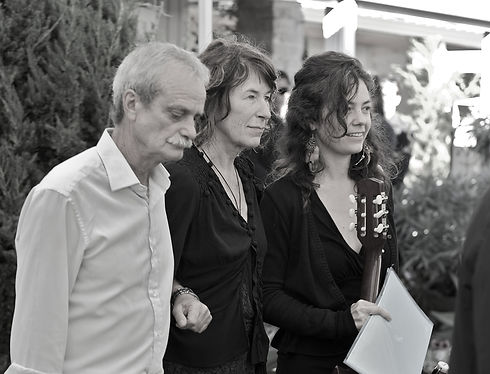

A Family's
Bipolar Journey
KEY EVENTS AND
NEW PATHWAYS
Matt (Skellern) diagnosed at 25.
1
The problem: After volunteering to enter the mental health unit following his first 'official' episode, he later tried to leave and was kept in the locked unit under the Mental Health Act, resulting in a legal record.
Matt lost trust in the mental health system - he was a professional and hated having a ‘record’.
A different pathway: When safety concerns for self or others are apparent, involuntary stays in the in-patient unit may be required, but surely a legal record is not.
Matt went from pillow to pills, with little else. Medication was his option to deal with this new diagnosis.
2
The problem: He experienced serious side effects from the medication and wasn’t always sure they actually worked as he still had to manage mood swings.
A different pathway: Matt's first engagement with the mental health service was a real opportunity for him, and his family, to be equipped with skills and knowledge to understand and manage his bipolar well. He could have undertaken training and education, been linked with ongoing therapy and a good peer support network, allocated a case manager etc.
After five years on meds, Matt chose to come off medication at 29 years, so he could be med-free by his 30th birthday.
3
The problem: Over-reliance on family and sole reliance on his GP who did not refer Matt to specialist services when he declared his wish to begin reducing his medication. Matt achieved his med-free status by 30 but didn’t live to see his 31st birthday.
A different pathway: A specialist team needed to support his reduction in medication.
Spiralling from amber (prevention) to red (crisis).
4
The problem: We (his family) were not able to link him with the right supports within the community because they weren’t easily accessible and we were out of our depth. It's important to remember that mental health is not isolated to the individual, it's a systemic issue, loved ones are effected and part of it.
A different pathway: When Matt hit the amber territory, that is, when his mania started to resurface, he needed to be able to access a clear pathway to mental health services. It doesn’t make sense to have to wait till someone is in the red (emergency/crisis) range before being able to access services. By that time, most of the damage is already done.
Stuck `in the dark’ at home with an endless Masters thesis.
5
The problem: After surviving the intense mania, Matt became depressed. He was isolated in the family home, with no money and too depressed to complete his thesis, but he remained silent as to the intensity of his depression.
A different pathway: If Matt had reached out a little more, if we had realised more of the extent of his depression, if we had asked a few more brave questions, if Matt had been a little more honest with us rather then feeling like he had to pretend and shield us from his suffering, if he had the right health professionals around him that he could trust, if he had been willing to ask his university supervisors for another extension, maybe he would still be on this planet with us now.
No place to go.
6
The problem: Matt didn’t know of any services that gave him hope for recovery. The day after his Masters deadline passed, he took his life.
Possible solution: Having a service Matt could have gone to that would have regenerated his hope – a whole person-centred approach. Or even more simply, connecting with an excellent health professional/peer support worker who lived nearby and he could engage with and trust.
Some take home messages from our family’s story
-
All people with serious mental health issues need more then pills and a pillow.
-
We need to see more peer-led, whole-person centred services.
-
Mental health is not an island – that is, the issue is not isolated to the individual. It’s a family and whanau issue, and the family also needs to be supported rather than be relied on to support the individual.
-
When a loved one goes, the pain is passed on to the family and their grief process takes years and probably never totally dissipates. Whanau need support to transmute the pain they inherit when their loved one passes.
-
Suicide is becoming too prevalent, particularly in our youth. We need more community-driven responses, people need to openly talk about this issue using positive loving language, and actively support each other's wellbeing. Resources and services need to be embedded in the community with specialist support.

